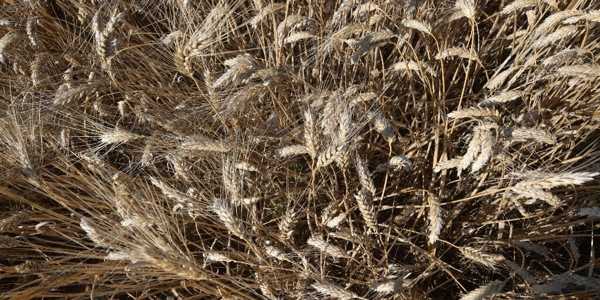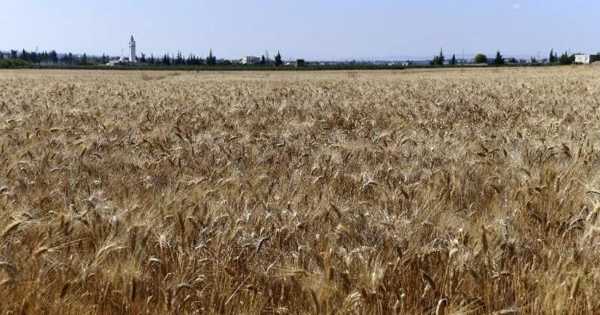Traditional seeds come from a genetic heritage that is best suited to the environment, according to Maher Medini of Tunisia’s National Gene Bank, which promotes the country’s development of sustainable agriculture.
“They are reservoirs of genes that are hundreds, if not thousands, of years old,” Medini explained, adding that the seeds are more resistant to the ever-increasingly dangerous effects of global warming. Climate change is causing challenging variations in rainfall, temperature, and humidity, which is causing crop disease, he claims. “Diversity is the foundation of adaptation,” Medini said.
In Tunisia, the disease is wreaking havoc on wheat varieties developed in the 1980s, but farmers say traditional varieties appear to be more resistant. Tunisian farmers used to set aside a small portion of their harvest to sow the following season, using indigenous seeds. However, the development of hybrid or genetically modified seeds resulted in higher yields, and native varieties were largely phased out of use.
One issue is that seeds from new varieties cannot be replanted, so farmers must purchase more seed each year. In Tunisia, disease is wreaking havoc on wheat varieties developed in the 1980s, but farmers say traditional varieties appear to be more resistant. Some farmers are now researching the methods used by their forefathers.
Tunisian farmers are turning to the past to ensure a future by planting indigenous seeds as the North African country suffers at a time of drought, disease and climate change.
Mohamed Lassad ben Saleh operates a farm in the agricultural region of Jedaida, about 30 kilometers (18 miles) northwest of Tunis. He began planting a traditional wheat variety known as Al-Msekni eight years ago. The harvest is now in full swing on his farm. The wheat harvested from each hectare is weighed separately, allowing the productivity of each plot to be calculated.
“The results are good,” Ben Saleh said.
Superior yield
When he meets with other farmers, he tells them how his traditional seeds are doing. In recent years, the national average has been 1.4 to two tonnes per hectare, while Ben Saleh claims his yield has been five tonnes. Ben Saleh reports that his seeds are more resistant to drought and disease, requiring him to use less pesticide.
According to the Food and Agriculture Organization of the United Nations, three-quarters of global crop diversity has vanished over the last century. “The new varieties are weak and susceptible to mould,” he said. Because most farmers buy new seeds every season, the country currently imports 70% to 80% of its seeds each year. “Returning to local or native seeds is one of the conditions required to achieve food sovereignty,” said Aymen Amayed, an agricultural policy researcher.

The Food and Agriculture Organization of the United Nations has warned against the increased use of hybrid seeds, which it sees as a threat to indigenous varieties and local genetic heritage. According to the FAO, three-quarters of the world’s crop diversity has vanished over the last century.
‘2050 is tomorrow’
Tunisia’s gene bank, on the other hand, is working to “reclaim its genetic heritage.” It has been collecting traditional seeds from farmers since 2008, and it is also working to recover indigenous Tunisian seeds that are stored in gene banks around the world. Tunisian farmers used to set aside a small portion of their harvest to sow the following season, using indigenous seeds. So far, it has been able to repatriate over 7,000 samples of seeds from fruit trees, cereals, and vegetables from a total of over 11,000 samples located around the world.
These seeds are being replanted in Tunisian soil. According to M’barek Ben Naceur, the head of the national gene bank, more than 400 farmers have been persuaded to use these seeds, and old varieties like Al-Msekni and Al-Mahmoudi are being replanted.
“These seeds are the descendants of this land, and they are aware of it,” Ben Naceur said. “Our varieties have been accustomed to temperature and drought increases for thousands of years, so they will withstand climate change and temperature rises,” he added.
The UN’s Intergovernmental Panel on Climate Change issued a report last month that demonstrated unequivocally that the climate is changing faster than previously anticipated, and that this is due to human activity. Temperatures in Tunis reached 48 degrees Celsius at midday in August, breaking the capital’s previous record high of 46.8 degrees in 1982.
‘Returning to local or native seeds is one of the conditions required to achieve food sovereignty,’ according to one agricultural policy researcher. “Global temperatures will rise by 1.8 to two degrees between now and 2050,” Ben Naceur predicted. “And 2050 is just around the corner—not it’s that far away. Varieties that are not resistant will become extinct.”















